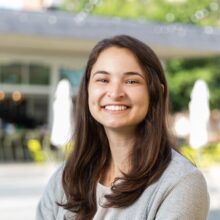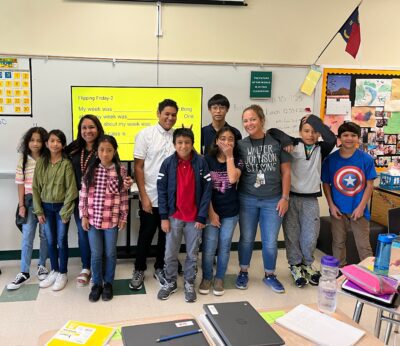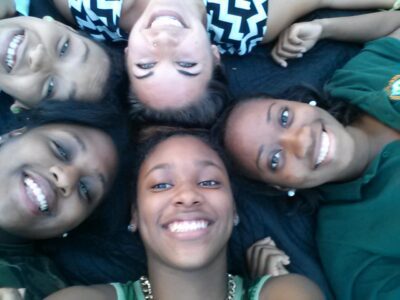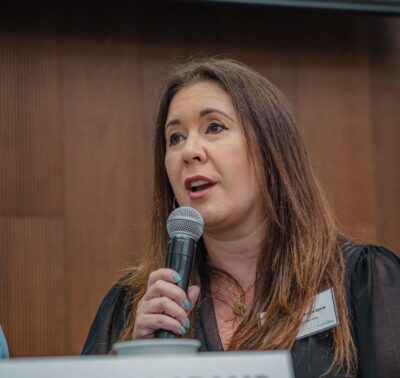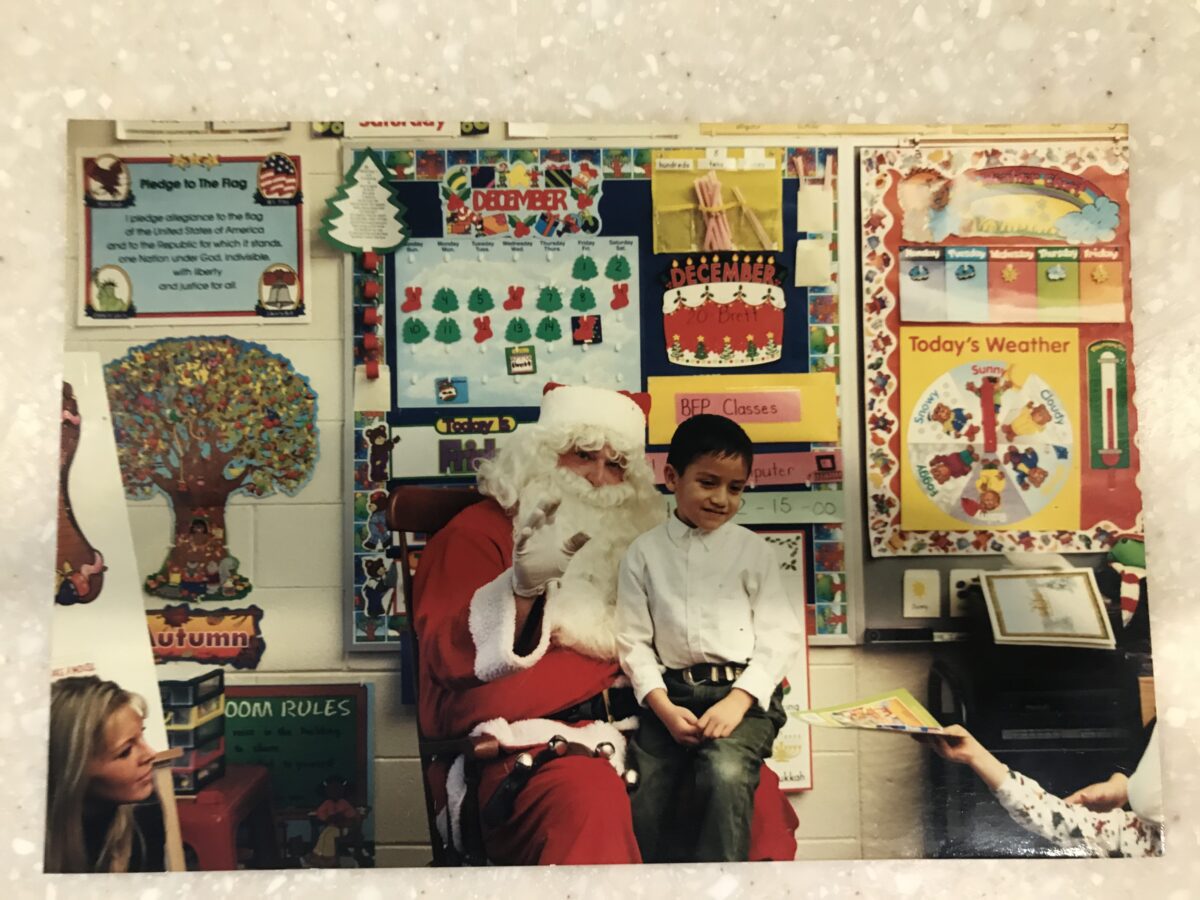

|
|
At the turn of the 21st century, Oscar Miranda Tapia was a bright-eyed five year old making a journey that would radically transform his life. He walked across the border with his family, leaving the only life he ever knew behind him. Two decades later, he’s pursuing a Ph.D. and helping shape higher education to be more accessible for first-generation students like him.
“The first couple years of my elementary experience are a blur. I think that’s in large part because Spanish was my primary language. English was not. I had a difficult time already just communicating,” said Miranda Tapia.
While Miranda Tapia has a hard time remembering many moments from his early elementary years, there is one moment from third grade that is etched into his memory.
“I remember being in a parent teacher conference where I was actually having to translate for my father. At that time, I was having to tell him that my teacher was saying that I was in danger of not passing the third grade. That broke my heart.”
Oscar Miranda Tapia
After that conference, Miranda Tapia started reading for two hours every day. While his friends were outside playing, he stayed inside, focused on learning and growing in the language of his new home.
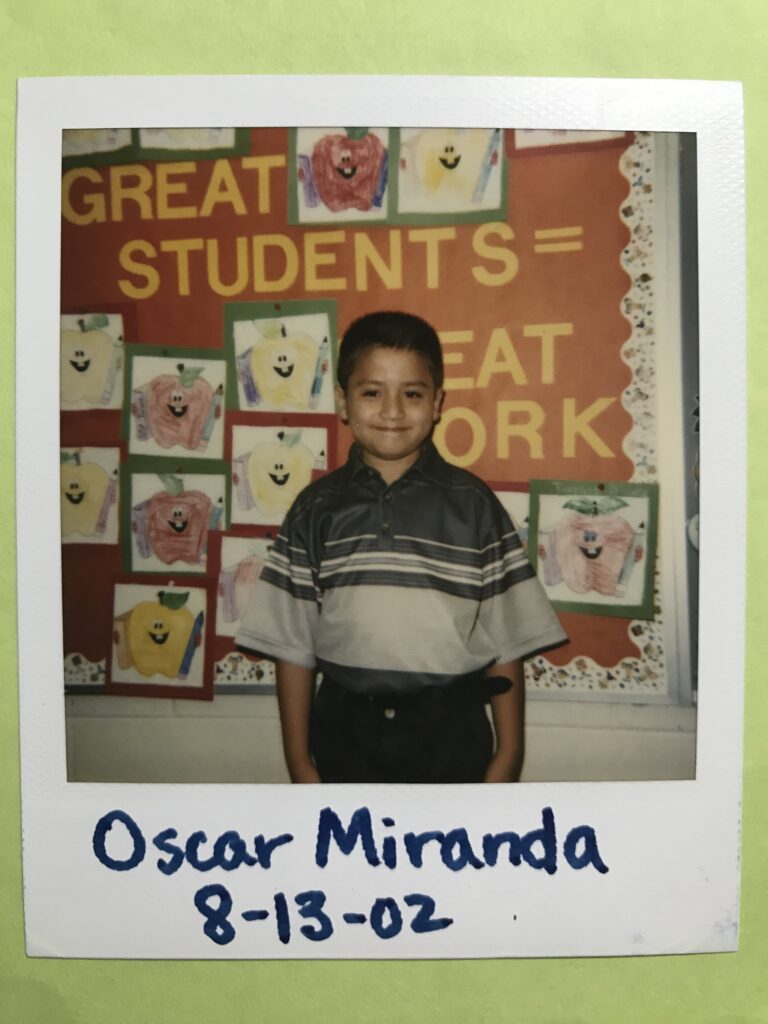

The extra effort paid off. By the time he reached fifth grade, his teacher noticed he might be a good fit for the advanced math class.
“That really set me on a path to be in the advanced level classes. By the time I was in middle school, I began to get more involved,” said Miranda Tapia.
Once he reached high school, school went from being a challenge academically to a challenge of access. Miranda Tapia had many friends and was a captain of the football team, on track, and in band. However, he knew he was different from his mostly white peers, and he knew that difference would prevent him from participating in experiences in which most of his friends were taking part – from getting a driver’s license to planning for college.
When it came time to apply for college, Miranda Tapia knew it likely would not be an option for him because of his status as an undocumented immigrant. His high school counselor played a critical role in helping Miranda Tapia overcome the barriers he needed to in order to get to college.
“I was hiding behind the fact that I just couldn’t afford it. The closer that I got to graduating, I told myself, ‘I’m probably not gonna go to college.’”
Oscar Miranda Tapia
But his counselor was persistent. She insisted that he apply for scholarships and that they could work together to make college happen for him. As Miranda Tapia continued working with her, he decided to tell her about his immigration status.
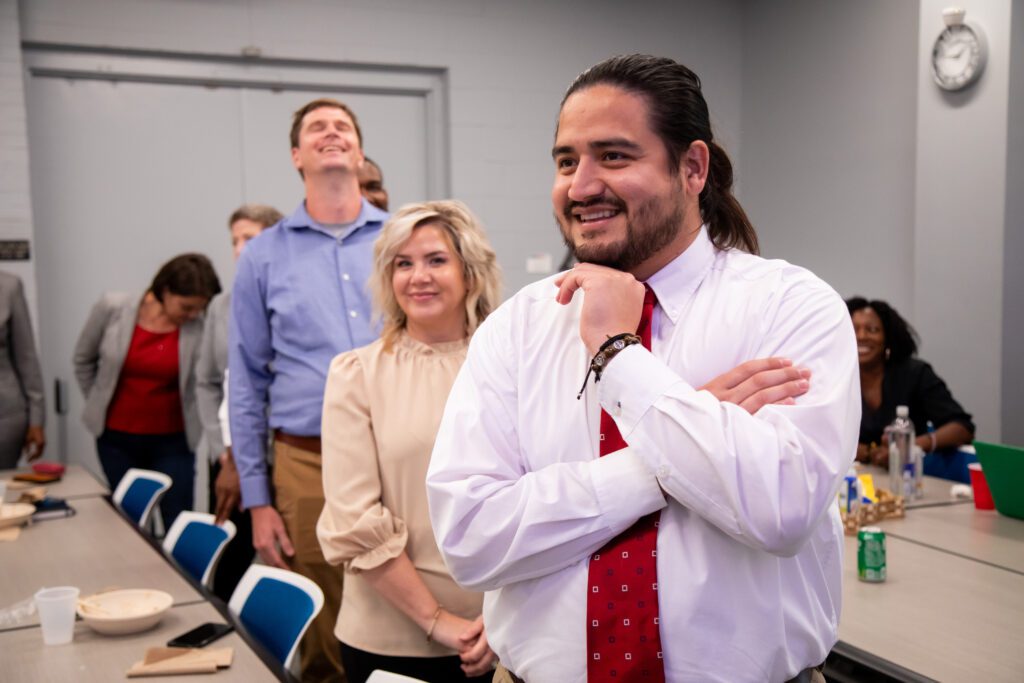

“At the time, she didn’t know what it meant to not have DACA, but she made it her mission to understand. She started reaching out to organizations. She actually reached out to El Pueblo in Raleigh who connected her with this scholarship program called Golden Door Scholars that was coming out that year. And also in that same year, the DACA program came out. It was a perfect storm alignment.”
Oscar Miranda Tapia
Golden Door Scholars was founded in 2013 with the goal of promoting economic mobility for undocumented students. Miranda Tapia applied and became one of the first Golden Door Scholars. Combined with a scholarship through the Odyssey program at Elon, Miranda Tapia’s once doubtful dream of going to college became a reality.
“When I got into Elon, I began to see other Latinos that were also high achieving, that had also made it to the university, and seeing them I began to lean a lot more into my culture,” he said.
Miranda Tapia’s time at Elon showed him the power of relationships in education. Upon reflection, he realized that although his hard work was a critical component of his success, so were the people in his life encouraging and connecting him. His high school counselor was one of those people. The co-director of the Odyssey program at Elon at the time, Esther Freeman, became one of those people as well.
Everywhere Miranda Tapia went, he continued to build meaningful relationships with counselors, advisors, and professors. It was Freeman who recommended Miranda Tapia apply to Harvard, where he ended up earning his master’s of education in 2019.
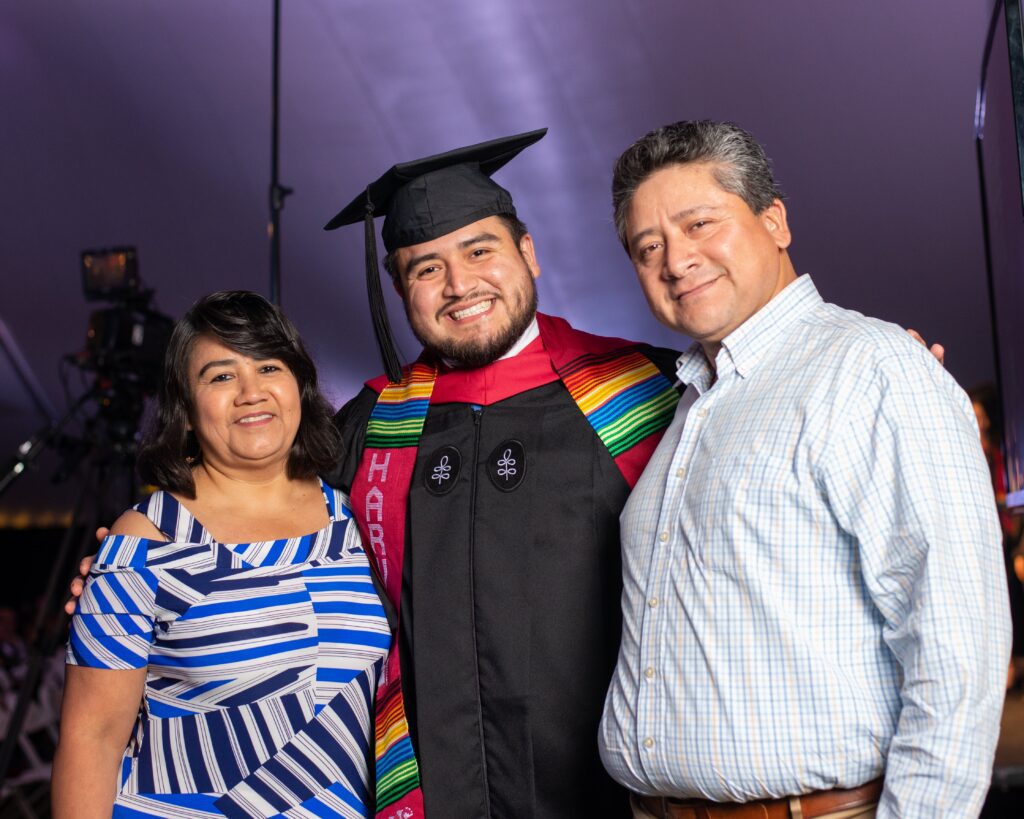

After graduating from Harvard, Miranda Tapia returned to Elon to build transformative relationships with students like the ones he experienced during his time there. From 2019-2022, he served as the assistant director of first-generation student support services.
“All of these relationships in my life have just been so instrumental. They have transformed my life, and I want other students to be able to know that this is something worth paying attention to. Yes, we can get those positions, those grades, but it’s the relationships that are going to be so important in helping you get to where you want to go.”
Oscar Miranda Tapia
Relationship-rich education is a topic Miranda Tapia continued to not only grow from experiencing personally but also to study. He co-authored a book titled Connections Are Everything: A College Student’s Guide to Relationship-Rich Education that was published in 2023 by Johns Hopkins University Press. Miranda Tapia wrote the book with former Elon president Leo Lambert; Peter Felten, the executive director of the Center for Engaged Learning at Elon; and Isis Artze-Vega, the college provost and vice president for academic affairs at Valencia College.
As Miranda Tapia continues his education through pursuing a Ph.D. in educational leadership and human development higher education opportunity, equity, and justice at North Carolina State University, he is still focused on relationships, embracing his Latino identity and building community.
“Now that I’m in NC State, I am getting involved with as many things as possible. Most recently, me and a couple other Latino students have developed NC State’s first Latine Graduate Student Association,” he said.
While Miranda Tapia works on his Ph.D, he is working as a graduate research assistant at the Friday Institute for Educational Innovation and a research associate for the NC State Belk Center for Community College Leadership and Research.
He’s not sure what’s next, but for now he’s okay with that, as long as he feels he is making a positive difference in the lives of the people around him.
“I think most important to me is feeling like I’m making a difference and an impact. Whatever little grain I can add into their life that’s positive, that’s what I’m shooting for. If that means helping people access higher education, then I’m going to do that. If that means working within the research space, trying to shed more light on the undocumented student experience, then that’s what I’ll focus on. I’m still trying to figure that out. I don’t know where life will take me. Not once did I ever think that I would go to college. Not once did I think I’d get into Harvard and be an undocumented student pursuing their Ph.D. Having done all of these things, it just sounds like a dream. Honestly, I’m still living this dream.”
Oscar Miranda Tapia
Behind the Story
It is EdNC’s practice to use Hispanic/Latino/Latina/Latinx/Latine based on the data, individuals, or organizations being cited.
